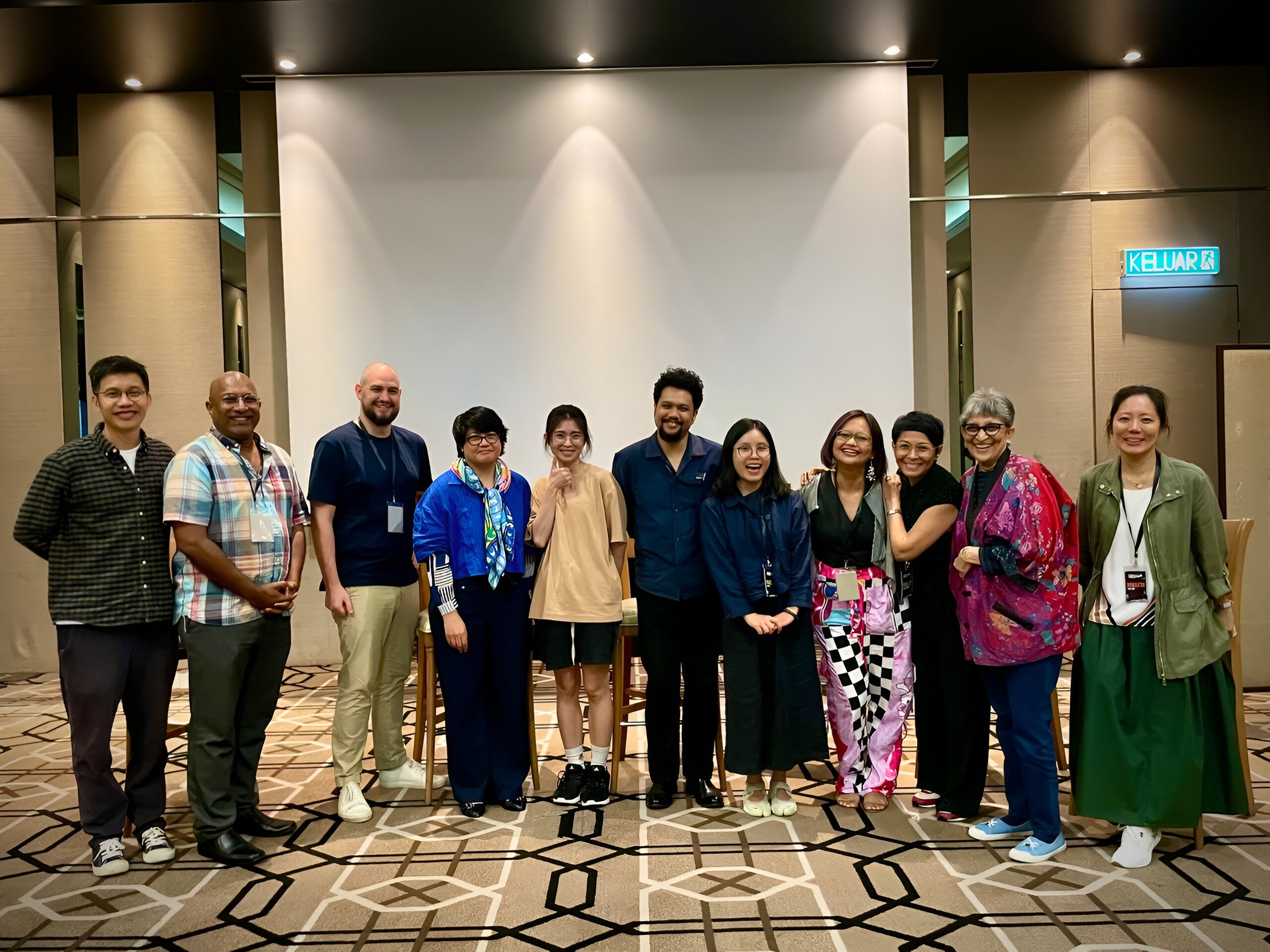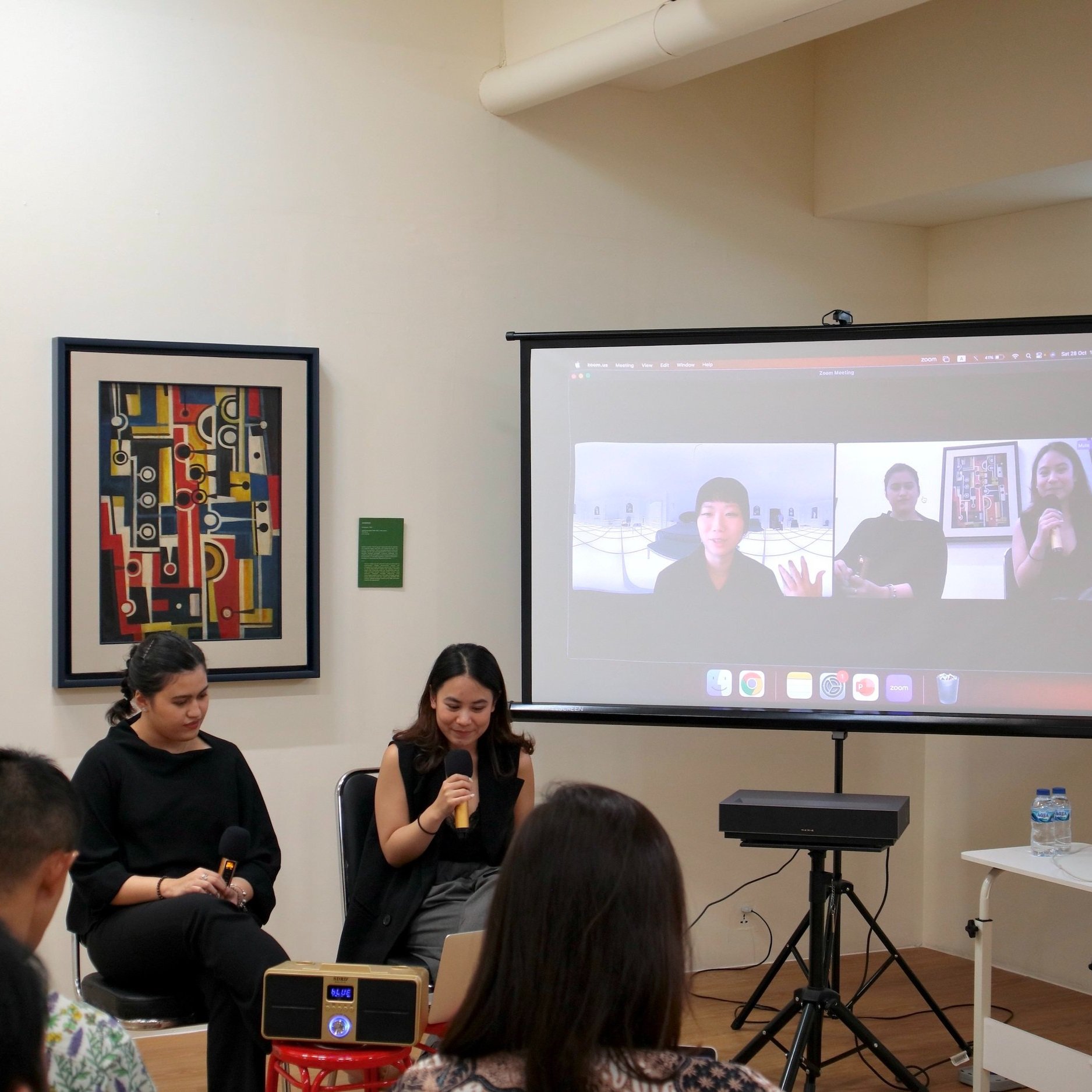My Own Words: Yuni Hadi
The Substation, Objectifs, SGIFF and ArtsEquator
By Yuni Hadi
'My Own Words' is a monthly series which features personal essays by practitioners in the Southeast Asian art community. They deliberate on their locality's present circumstances, articulating observations and challenges in their respective roles.
Flashback to 1997. I was a fresh graduate from LASALLE College of the Arts, the first cohort from the BA (Hons) Arts Management programme. My numerous part-time jobs and internships had led me to believe that everything was possible. Looking for a job in the arts however, proved to be more challenging than anyone had let on. No one understood what arts management was, and there was very little guidance on what we could do and how to do it. Over the years, this would turn out to be a silver lining in my career. Going out there and forging a career path for myself, I discovered a passion that continues to serve as my guiding light to this day – to champion our own Southeast Asian voice and community.
Yuni Hadi at the 30th Singapore International Film Festival press conference in 2019.
Growing up in 80s Singapore, I was exposed to mostly American and British culture through music, television, and film. I only started discovering content from other countries in secondary school through a video shop at Serene Centre and cassette shops at Far East Shopping Centre where they would customise cassette tapes. After that, my eyes were further opened through a school visit by writer Gopal Baratham, reading The Teenage Textbook by Adrian Tan, and listening to The Oddfellows, Lizard’s Convention, and Art Fazil. These were local artists talking about things I could really relate to. This was the voice of tiny Singapore and it belonged to us alone. My journey continued on, bringing me to The Substation and the Singapore International Film Festival in the days when there were few options for independent artists. These experiences left an indelible mark on me and would shape the choices for the rest of my career.
The launch of the ArtsEquator Southeast Asian Arts Censorship Database in September 2023 in Kuala Lumpur. From left: Mark Teh, Sharaad Kuttan, Kai Brennert, Sudarat Musikawong, Audrey Chim Shu Yee, Zikri Rahman, Linh Le, Katrina Stuart Santiago, Kathy Rowland, Marion D’Cruz and Yuni Hadi.
Yuni Hadi and Kathy Rowland.
In the many years invested in the development of our local artists, I found that it was important to build a bridge to the community. In the form of talks, reviews, or articles, the opportunity to discuss local artwork requires both in-depth knowledge and contextual framework. With the ArtsEquator Fellowship, an initiative I have been developing with founders Kathy Rowland and Jenny Daneels, I am again reminded of the necessity of connecting artists with their audiences.
The Fellowship is a professional development programme for mid-career arts writers in Southeast Asia. The current landscape of publishing has changed dramatically and independent content platforms such as websites, newsletters, podcasts, and videos have sprouted out of necessity. They are often started by arts writers who have found freedom in self-publishing. On these platforms is a treasure trove of discovery and a gateway to a better understanding of the art we are producing.
Substance, The Substation’s bimonthly newsletter. The archive is with the National Library Board Singapore.
ArtsEquator Fellowship 2023.
Working with the Fellowship’s inaugural batch of four writers from Singapore, Indonesia, Philippines, and Myanmar has been a gratifying experience. They are shining a light on the arts from Southeast Asia that might not otherwise get the attention they deserve. I think back fondly on my past experiences doing the same thing at earlier organisations – feeling my way as a young editor of The Substation’s bi-monthly Substance magazine in 1999, a stint as co-editor for Asia-Europe Foundation’s SEA-Images film website in 2003, and starting the Singapore International Film Festival’s Youth Critics Programme in 2014. Today, as it was back then, reflection continues to be a necessary part of the local arts community. As my experiences shaped me, I hope that this Fellowship becomes a catalyst for further discourse about the artworks that tell our stories from Southeast Asia.
The ArtsEquator Fellowship 2024.
Application for the ArtsEquator Fellowship for mid-career arts reviewers and critics in Southeast Asia is now open until mid April. Full details are here.
The views and opinions expressed in this article are the author's own and do not necessarily reflect those of A&M.
Read all My Own Words essays here.
About the Writer
Yuni Hadi is Executive Director of ArtsEquator. She was formerly Executive Director of the Singapore International Film Festival and Co-Director of Objectifs Centre for Photography & Film. She is an Eisenhower Fellow and received the United Technologies Corporation Fellowship in 2016. Yuni also co-produced the film Ilo Ilo which became the first Singapore film to be awarded the Camera d’Or prize at the Cannes Film Festival. In 2022, she received the Professional Achievement Award from Thailand’s Ramkhamhaeng University’s ASEAN Film Festival for outstanding contribution to ASEAN cinema. She now serves as Chairperson of The Substation and the Board of Objectifs Centre.




















